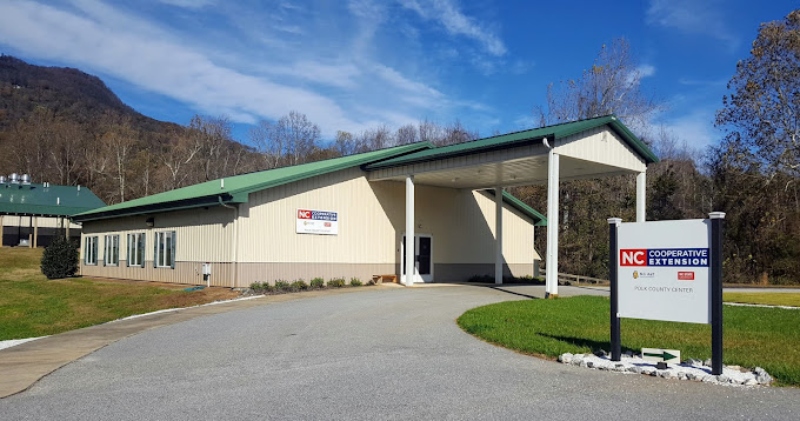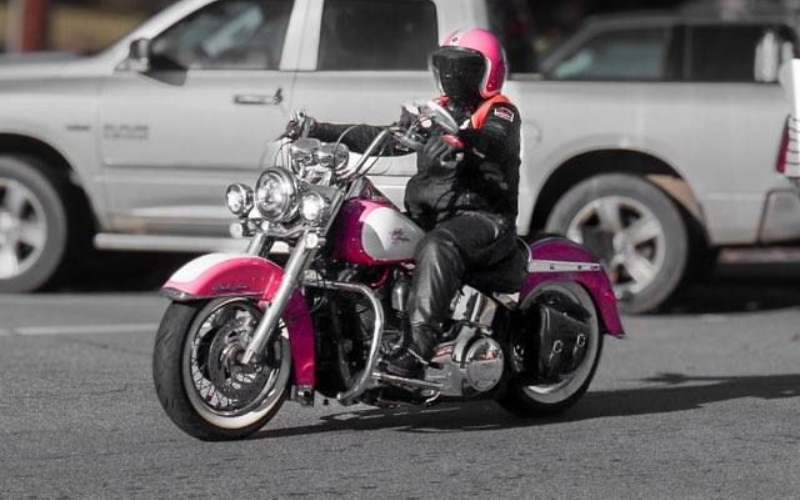Saving feral cats: Dana Mayer and Po’Kitties
Published 12:53 pm Friday, November 5, 2010
Dana Mayer’s first cat came to her one day while she and a friend were hiking with their dogs on Cullowhee Mountain. They stopped to eat some cheese and crackers and a big black cat with a white streak of lightning on his face came up and proceeded to eat most of their snack.
Mayer made the remark that if the cat had the nerve to jump in the car with the dogs, she’d take him home he did, so home came the cat.
“He was a terror!” Mayer said. “After him, all the other cats I have had seem tame.”
Trending
Mayer was born in Birmingham, Ala., and moved with her family to Greenville, S.C., when she first started school. Her family always had a dog and growing up she was influenced by her parents’ fondness for animals.
Mayer’s mother was a huge influence in allowing and encouraging Mayer to bring animals home no matter what kind (well, maybe not snakes). Mayer said she always wanted to be a vet, but after working for a veterinarian decided that she would never make it because if there was any blood in sight she was usually hiding somewhere from it.
While attending college Mayer acquired a puppy. Once the dorm mother discovered her in the room (after the golden mouse incident, the bullfrog incident and the snake incident), Mayer had to move back home and commute to classes. This was a pretty small sacrifice for having a dog of her own.
Mayer received her degree in biology from Furman University and did post-graduate work at Western Carolina University.
Mayer had been working as a volunteer at the Foothills Humane Society and was invited to join the board of directors.At her first meeting, the annual “live release rate” was read, and while by most shelter standards in the area, the numbers were not so bad, she thought they could definitely do better.
At that time most feral cats were euthanized after a brief hold at the shelter. That decreases a shelter’s live release number, not to mention what happens to the cats. Mayer’s love of cats made her determined to help facilitate a change, so that the lives of these cats and others could be saved.
Trending
Mayer did a little research and pitched her idea to the others on the board of directors. They were all for it, so she recruited committee members and had the first meeting of the group.
They decided to call the program Po’Kitties and officially begin on October 16 National Feral Cat Day in 2007.
Someone came from Charlotte to train the committee members about trapping and brought a variety of traps and valuable tips for trapping feral cats. Landrum Veterinary Hospital was familiar with feral cats and agreed to spay or neuter these cats, give them rabies shots and vaccines, and ear-tip them for a set fee. Trapping began and much was learned, Mayer said.
Although Mayer loves both cats and dogs, she said cats have always been the underdog in the shelter systems and she always roots for the underdog. FHS is&bsp; heads above many area shelters, Mayer said, but the feral cats coming in were certainly not able to be adopted in the same fashion as domestic cats and kittens.
The Po’Kitties program allows the cats to live out their lives without having more offspring and at the same time cuts down on the sometimes annoying behaviors of unaltered cats. The program traps, neuters, and returns the feral cats to their home locations. A rabies vaccine is given while they are still under anesthesia and they are returned to their home location with a caretaker to look after them daily. Landrum Veterinary Hospital does all the vet work for them, as Mayer said most vets are not equipped to handle feral cats.
Rarely, the cats are in danger in their home location. Then Po’Kitties attempts to relocate them and that can be quite difficult. Sometimes people will offer space in either a barn or a shed and to provide food, water, and shelter.
In the case of the Gully Street Cats, the entire colony of about 60 cats had to be relocated, mostly in pairs. There is also a program to foster and socialize the kittens when they come in, to help them become adopted. Some of the cats become so used to their caretakers they come inside and sleep on the bed with them.
The following groups have continued to pave the way to help free roaming cats. Mayer said their information and research has been invaluable to the Po’Kitties program: Alley Cat Allies, Neighborhood Cats (Best Friends) and Goathouserefuge.org.
Thanks to a generous donor, Mayer was able to attend the first ever Feline Forum in Chicago last year.She said it was a pleasure to meet with these groups and learn from their leaders. Mayer returned to the shelter with new ideas and great enthusiasm for the shelter.
When someone wants to adopt a cat or kitten, the shelter prefers to match the cat with the owner to be. If a barn cat is desired, an outdoor cat will fit. They have lap cats, too. If the cat is an outdoor one the shelter prefers that the cat goes to a home that is not on a busy road. The shelter talks to the perspective owner about children, other animals in the home, and lifestyle and match all so everyone is happy. The FHS requires that the cat be spayed or neutered and have its shots, and they microchip the cat for identification purposes. They also require anyone adopting a cat sign an agreement never to have the cat declawed, as they believe it is cruel and inhumane and creates more problems for the cat.
Away from the life of the shelter, Mayer enjoys walking her dogs and she likes photographing the animals.
She said she believes that kindness, loyalty, and a good attitude are the most important things in life and that anyone can do whatever they set out to do if they have a good attitude.
Mayer says that Nathan Winograd has influenced her greatly through his book “Redemption.” The book is changing the way&bsp; shelters all over the country are run, she said.
“Many caretakers develop relationships with their cat charges and that may change their lives for the better,” Mayer said. “Programs like Po’Kitties are working all over the country so that cats live out their lives in home colonies. On many college campuses in New York City, Richmond, Va., San Francisco and other places, most people want feral cats dealt with humanely and&bsp; allowed to live in peace. (But please, let’s stop them from creating more and more cats!)
“For me personally it was such a blessing to have an elderly lady tell me recently that her Po’Kitties are the first things she sees each morning when she gets up and looks out her window. Then she added:”They are the joy of my life.”
“I think the cats would agree,” said Mayer.





